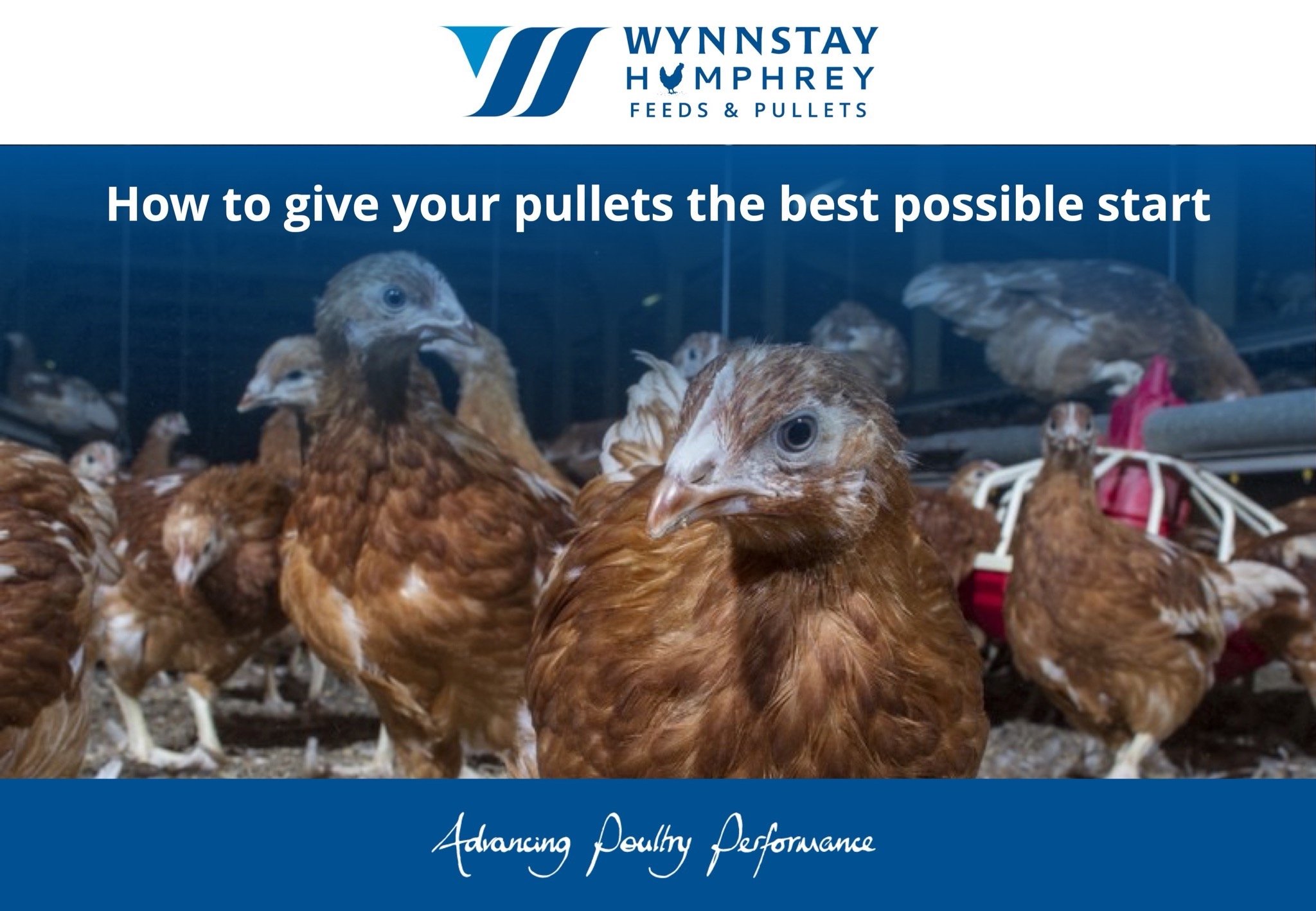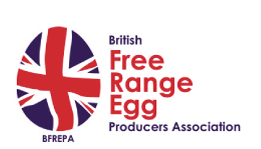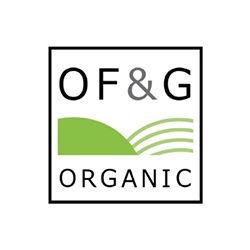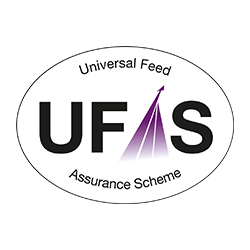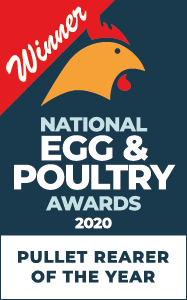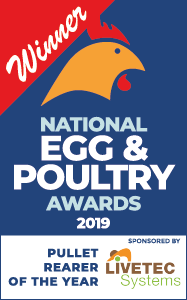We were delighted to be featured in the July 2021 edition of the RANGER magazine, in an article titled, Key bird management learnings from the poultry housing order.
The article asked members of the Humphrey Feeds & Pullets team for their top tips for keeping birds healthy and calm both during and after the compulsory housing order.
You can read the article in full below, or click the picture to download it.
Click here to download the article
Housing measures in place across Great Britain from December to March were a vital tool in protecting flocks across the country from the avian influenza circulating among wild birds.
Now that flocks are once more allowed out, we asked poultry experts for their top tips for keeping birds healthy during compulsory housing orders, and as they are lifted.
Minimising stress
Hens are creatures of habit, likely to feel stressed by any rapid changes to their daily routine. If we can make these transitions easy for them, we minimise the incidence of feather loss and other stress-related symptoms. With proper care both hens and farmers can successfully manage an enforced change in routine.
Humphrey Feeds & Pullets’ team of Poultry Specialists have advised farmers on the best way to manage the challenges on laying farms with a variety of flocks, housing systems and ranges. Their experience builds on Defra advice to provide the following practical tips.
Preparing for lockdown
Provided there is some warning of an impending lockdown, farmers have time to gently prepare their flocks. There may be little impact on younger flocks, but older birds will be more established in their routine and affected more severely by lengthy closure of the pop-holes.
Preparations may include extending the time the flock spends indoors, letting them out a little later each day in the run-up to the housing order. This will disrupt the birds’ inner clocks and avoid smothers in corners as they learn not to stick to a learned timetable.
The temporary addition of Sodium Bicarbonate to rations or water can also help calm birds prior to any change, taking the edge off any potential aggression.
During lockdown
Once restricted to the house it is important that the birds are able to behave as naturally as possible in order to limit stress. Humphrey’s Poultry Specialists offer some important tips:
Enrichment is key
Providing suitable enrichment gives birds something to do, distracting them from potentially-harmful activities such as feather pulling. However, this should not be seen simply as a box-ticking exercise, says Humphrey’s Anna Cutler, Poultry Specialist for the South West. “There is no point just adding items to the hen-house without checking that they actually provide stimulation,” she warns. “It is important that the birds show an interest, so once they are bored you should switch to something new.” Anna recommends the usual ropes, bottles, bales, hay nets and pecking blocks, but used mindfully so as to gain maximum interest from the flock.
Provide a good quantity of high quality litter
Your birds will also keep themselves busy continuing to dust-bathe and scratch indoors if you ensure they have adequate, friable litter. Good ventilation and the lack of moisture from open pop-holes should facilitate this.
Be vigilant
Increasing your regime of walks, especially in the afternoons, can be very helpful during housing restrictions. Walks also give you the chance to see whether your enrichments are still providing interest as the birds have finished in the nests.
Manage the environment
Reducing light levels within the house can help de-stress the birds during long confinement. It is also important to control air quality, though usually it will be much simpler to maintain a consistent flow of air at the right temperature and humidity within the closed environment.
Maintain treatments
It is important to keep feed changes to a minimum during housing orders, and though your flock will face fewer hazards in the enclosed environment it is important to maintain worming treatments, as worms can continue to cycle and spread within the house.
Preparing to get back on the range
Once a housing order is lifted it can be tempting simply to slip back into your normal routine. However, taking the time to prepare for reopening will protect your hens from added stress and potential illness, and may prevent a temporary dip in production.
Prepare the range
It is important to prepare the range for release of your birds, including cleansing and disinfection of hard surfaces, checking fences and clearing standing water. You should also consider adapting the range to take account of any initial nervousness the birds may show upon reintroduction to open areas.
“Consider moving any portable cover closer to the shed to provide additional reassurance as well as practical protection from birds of prey in those early days,” recommends James Wilson, Humphrey’s Poultry Specialist for Midwest England/Welsh borders. “The more hens you can encourage onto the range to reduce interior stock density the better.”
Limit light
Your flock will have become accustomed to consistent, low levels of light, so opening pop-holes fully from the start can cause stress as large shards of bright light shine in on the birds. If your system allows it, begin by opening pop-holes only partially, or just in the afternoon, so as to limit this effect.
Prepare your flock
Mortality can result following release of the flock from long periods of lockdown, due impaction from grass fibre. “When birds have been held off grass for a while then get released onto a grassy range, especially in late autumn and winter when the grass is particularly fibrous, they can sometimes cause themselves an impaction from eating tough long grass,’ says Humphrey’s Alison Colville-Hyde, Poultry Specialist for the Mid South West. “This issue can be reduced by providing insoluble grit before they are released, and by keeping the range topped. Unlike fine young grass in the spring, which is more easily digested by the bird, fibrous grass can bind into a solid mass. Over a few days the bird will cease feeding and drinking as it actually starves itself due to nutrients and fluid not being able to pass the impaction.”
Alison suggests producers explore any unexpected mortality after birds are released with their vet, as simple steps of insoluble grit provision and range management can prevent this unfortunate problem from happening.
A return to normality
Compulsory housing measures for poultry were lifted at the end of March, although mandatory biosecurity measures remain in force until further notice to protect flocks from avian influenza. As we cycle through these protective restrictions, the more we can learn from those with broad experience of flock management, the greater our understanding of how to ensure laying flocks accept change calmly and continue to thrive.
Humphrey Feeds & Pullets
If you require any further information on any of the issues raised in this article please contact your Humphrey Feeds & Pullets poultry specialist.
If you would like to find out more about Humphrey Feeds & Pullets and how we can help you optimise the laying performance of your flock please call 01962 764 555 or email.




